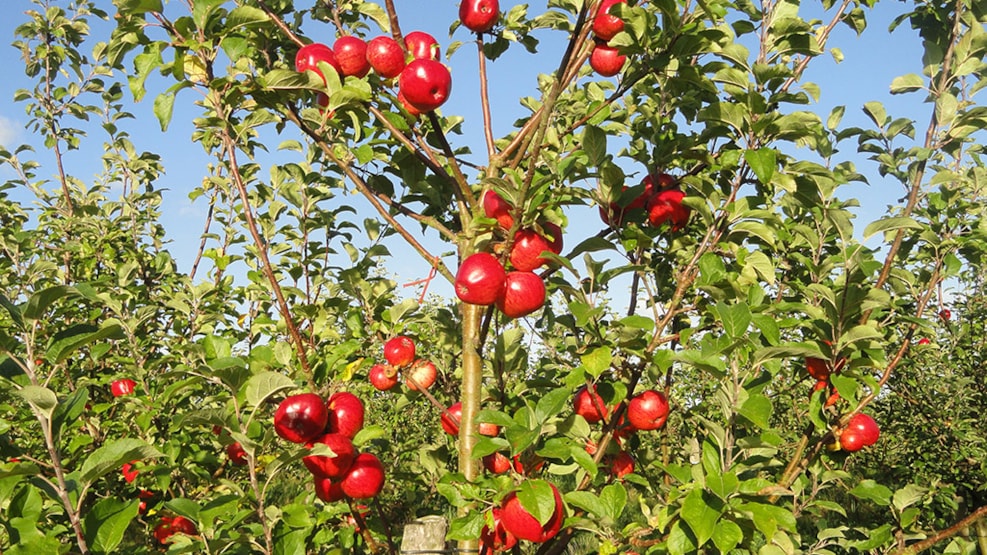
Geopark: Tåsinge Orchard
The growing of fruit on South Fyn and the islands is age old tradition
The mild climate here has provided particularly favourable conditions along with the clayey and fertile soils characterizing most of Tåsinge. The growing got a huge boost when Baron Niels Juel in the middle of the 1700s distributed fruit trees to all his serfs and, at the same time, zoned Troense town to have long backyards of several hundred metres in which the wives could grow fruit while the men were sailing. South Fyn and Tåsinge and the other islands became a power centre for Danish fruit production and they still are.
In the last decades of the 1900s, teacher Bent Nielsen collected dozens of old Fyn varieties of apples, pears, plumbs, cherries, and quinces and planted them on a field behind his house in the village Landet on Tåsinge. At the same time he attempted to trace the history of the varieties and was able to trace some of them back to lists of fruit trees that Valdemar Slot listed in the 1700s.
When Bent Nielsen died in 2015, a group of local enthusiasts took over his work in conserving, educate and communicate knowledge of the old fruit varieties. This group has acquired a plot of land near Bregninge where young fruit trees with grafts from Bent Nielsen are planted and where the story can be told—as well as be tasted.